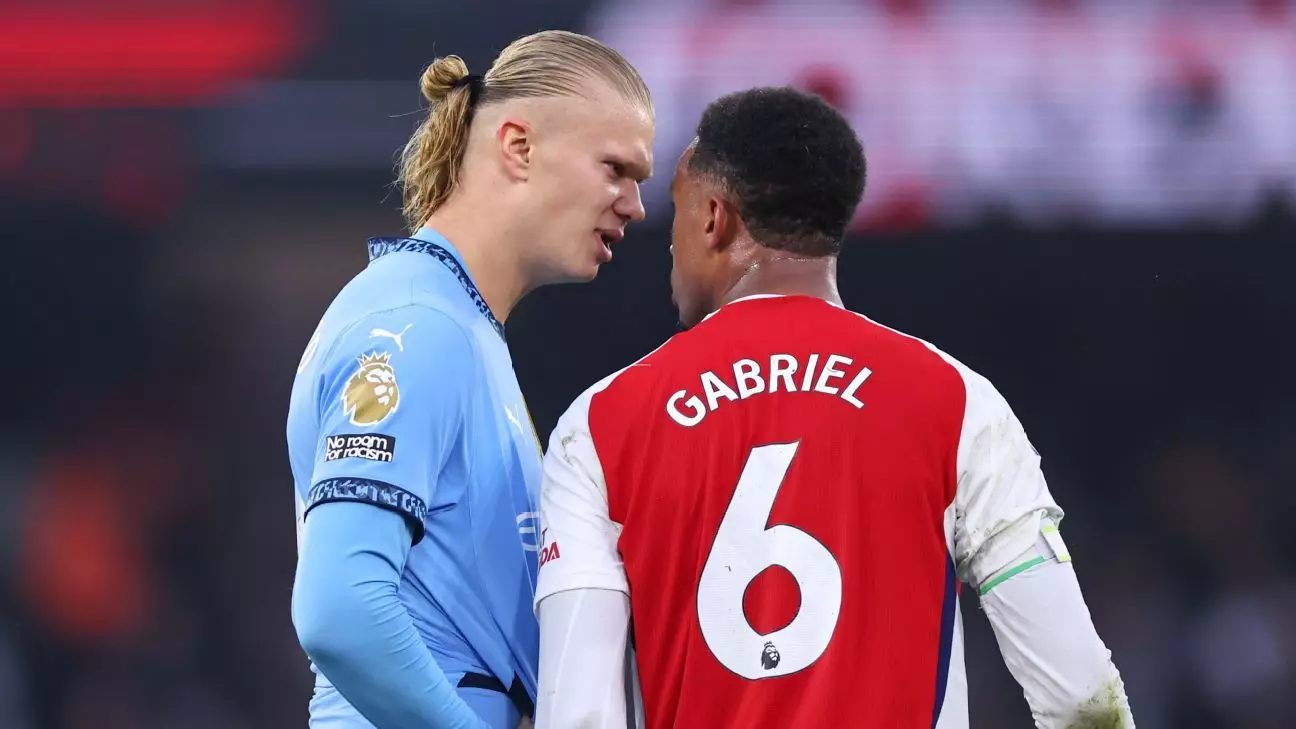In what was billed as a high-stakes clash, Arsenal decisively defeated Manchester City 5-1, showcasing not only their attacking prowess but also an undercurrent of tension on the pitch. Among the key moments that piqued interest was an episode involving Arsenal defender Gabriel Magalhães and City’s striking sensation, Erling Haaland. The incident quickly became a focal point for critics and commentators alike, with former Manchester United defender Gary Neville leading the charge against Gabriel’s theatrics that many deemed to be in poor taste.
TheControversial Celebration
Gabriel’s reaction after Martin Ødegaard’s early goal—a jubilant scream directed at Haaland—sparked immediate backlash from pundits. Following this, young Arsenal midfielder Myles Lewis-Skelly celebrated his maiden senior goal with a replication of Haaland’s meditative pose. While such celebrations can often add to the spectacle of football, this episode felt particularly charged, intensifying the rivalry and casting a shadow over the match’s vibrancy.
The animosity between the players was not born out of this single encounter; it drew from previous confrontations, including a notable incident from their initial meeting in September, where tensions flared publicly between Haaland and members of the Arsenal bench, which Haaland addressed by telling Mikel Arteta to “stay humble.” Such moments set the stage for deeper scrutiny into how players interact under pressure and the role of sportsmanship in fierce competitions.
Neville’s remarks, delivered candidly on his Sky Sports podcast, reflected a profound discomfort with Gabriel’s conduct. “It made me feel uneasy,” he stated, emphasizing that a display of outward aggression on the field—especially one that disrespects another player—compromises the integrity of the sport. His perspective is crucial, especially considering his extensive experience in high-stakes matches where emotions can run rampant. Neville’s assertion that he never resorted to similar displays of disrespect underlines a teaching moment in professional football for aspiring players.
Furthermore, Arsenal manager Mikel Arteta’s comments after the match hinted at a broader understanding of conduct in football. Arteta suggested that while passion and emotion are integral to the game, there exists a line that should not be crossed, reinforcing his players’ focus on the match rather than engaging in provocative displays. His admonition serves as a reminder that professionalism is paramount, even amidst an emotionally charged environment like that of a compelling rivalry.
As Arsenal trails Premier League leaders Liverpool, who hold a game-in-hand advantage, the pressure mounts. Managing not only game tactics but also player demeanor becomes vital in such a context. A respectful, disciplined approach may prove crucial; after all, maintaining composure is essential to face the grueling adversity of a competitive league.
Thus, as players strive for greatness, the expectation is that they embody the spirit of the game. While celebrating victories and exuberantly expressing one’s passion can invigorate fans, it must be balanced by respect and humility—elements that will only enhance the overarching narrative of football as a sport of camaraderie and competition. The notion of maintaining professionalism amid intensity suggests that while football is indeed a game of skill and ambition, it is also one of integrity and honor.

